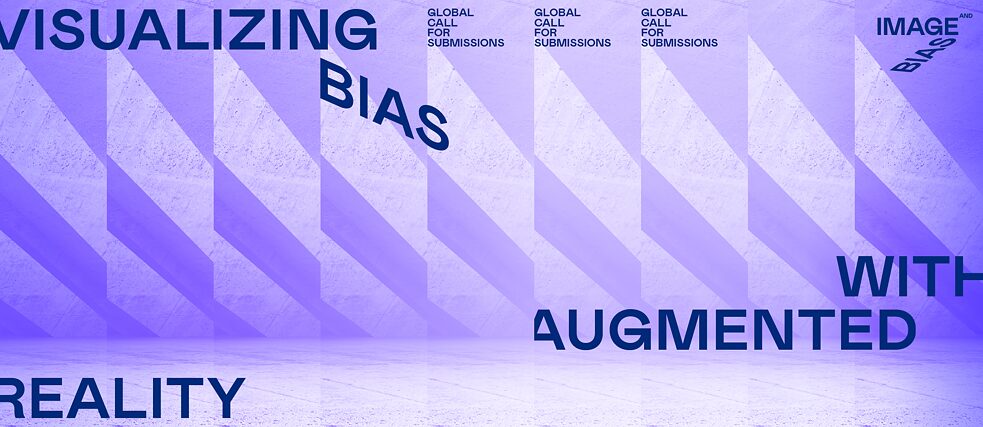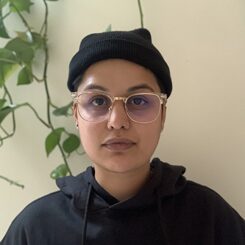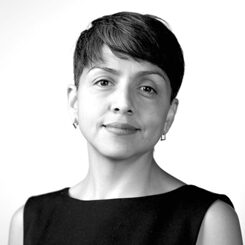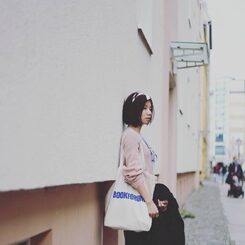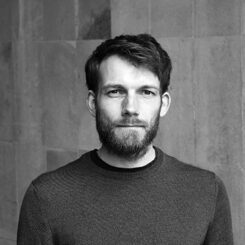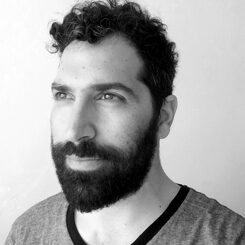Global Call for Submissions
Submissions should articulate our ongoing concerns with technology’s growing ability to alter people’s visual perception of reality. Submissions may explore discriminatory, misrepresentational, and biased apparatuses or express thought-provoking ideas on how to deal with the perpetuation of bias by technology. Participants can focus on the interlocking operations of technology-driven systems within — but not limited to — the following domains:- Advertising
- Journalism & Misinformation
- Robotics
- Medical Applications
- Surveillance Systems
- Cosmetics
The open call is part of the project “Image + Bias” that critically engages with the cultural realities being increasingly determined by imperceptible technologies that show no sign of reducing their propagation of digitally twisted, fictional, and discriminatory representations. The project addresses the following questions: How is bias coded into our technology? How can we infiltrate the opaque mechanisms upon which technological systems are built and counter the perpetuation of bias? What innovative approaches can we develop to strengthen inclusion, diversity, and sustainability in technology?
Requirements
- Submissions are limited to standard printable formats (DIN A2 / 420 x 594 mm / 16.5 x 23.4 inches / 300 dpi) animated by using the augmented reality interface of Artivive.
- The competition is open to everyone that is 18 years of age or older on the competition start date.
- Submissions are limited to English.
- Group submissions by multiple artists or collectives are permitted.
- Up to three artworks can be submitted per artist.
Submission Process
- Register for a free artist account on Artivive here.
- Create your AR project using Bridge and fill out the “Artwork Info” section (max. 250 characters).
- Use the form provided on the bottom of this page to submit an image of your project (for reviewing purposes) along with a concept explaining the idea behind the work.
Selection
- An independent international jury nominated by the participating project partners will select three finalists.
- The three finalists will each receive $1,000 as well as the opportunity to present their work to the public internationally via a live online event organized by the Goethe-Institut and the participating project partners.
- In addition to the three selected finalists, seven other submissions will be selected and displayed in an interactive online gallery and at the Goethe-Institut, Gray Area, and the Fotomuseum Winterthur.
- Final projects will receive an Artivive account that comes with five free artworks.
Schedule
- Submissions open: March 1, 2021
- Extended submission deadline: May 23, 2021 at 11:59 p.m. PT
- Announcement of the winners: June 11, 2021
- Online exhibition opening: July 2, 2021
Augmented Reality Workshop with Artivive
- Two FREE workshops will guide participants through new approaches to storytelling with augmented reality using 2D and 3D animations and videos. These introductory workshops require no prior experience and will introduce artists, graphic designers, illustrators, and the general public to the app and how to use it to bring their projects to life.
- Dates: March 19, 2021 at 10 a.m. PST (6 p.m. CT); April 7, 2021 at 9 a.m. PST (6 p.m. CEST); May 4, 2021 at 9 a.m. PST (6 p.m. CEST)
- Register for the workshops here.
- Please note: Workshop recordings will be available to all who registered upon request. Please reach out to us via email if you are interested in receiving a link.
Questions?
Please email us at: support@artivive.com
The Jury
Anum AwanAnum is an Interaction Designer and New Media Artist based in Oakland, California (Ramaytush Ohlone land). They craft mixed-reality experiences by blending physical and digital media centering queer, immigrant, and non-western narratives. Their work manifests as installations, projections, videos, live visuals, and programmed electronics.
Anum received a Masters in Interaction Design from California College of the Arts and a BFA in Graphic Design from Massachusetts College of Art and Design. Anum is a member of the Oakland-based experience design collective, Macro Waves, and professionally works as a Senior UX Designer at Adobe. They are also a Board Member of Gray Area.
Erandy Vergara
Erandy Vergara is a curator and researcher based in Montreal. Her main research interests include feminism, global art histories, curatorial studies, and postcolonialism, with a particular interest in internet cultures, artificial intelligence, and the ethics and aesthetics of participation. She holds an MA from Concordia University and a PhD in art history from McGill University. Recent shows include: Critical Proximity: Something About Human Connections That Can Happen When There Is A Fissure (Oboro, March 15 - May 14 2021) Eva and Franco Mattes: What Has Been Seen (Fondation Phi pour l’art contemporain, November 2019-March 2020) Speculative Cultures: A Virtual Reality Art Exhibition, curated with Tina Sauerländer (Anna-Maria and Stephen Kellen Gallery, Parsons School of Design, New York, 2019).
Iris Long
Iris Long is a writer and independent curator. She currently works as a researcher on art, science and technology at Central Academy of Fine Arts, with a research focus on how art responses to the current global reality of ubiquitous computing and big data. She lectures on data art at CAFA. She was shortlisted by the first M21-IAAC Award (International Awards for Art Criticism). Her translation work, Rethinking Curating: Art after New Media, received nomination from AAC Art China awards in 2016. In 2018, she was the recipient of Hyundai Blue Prize for curators. Her research work has been presented in “Art and Artificial Intelligence”(Open Conference, ZKM), “Korea Research Fellow”(MMCA), “Art Machines: International Symposium on Computational Media Art (ISCMA)”(Hong Kong),International Symposium on Electronic Art and Digital Research in the Humanities and Arts and ISEA.
Iris has a master degree of Critical Writing in Art and Design from the Royal College of Art, UK and a bachelor degree of Journalism and Communication from Tsinghua University, China.
Mattis Kuhn
Matthis Kuhn, artist and curator, works on the reciprocal design of humans, machines and the shared environment. The focus is on digital machines (algorithms, artificial intelligence, formal systems, software) and the intertwining of humanities with engineering. He curated the exhibitions "I am here to learn – On Machinic Interpretations of the World" and "How to Make a Paradise – Seducement and Dependence in Generated Worlds" for Frankfurter Kunstverein. His works have been displayed at ZKM Karlsruhe and EMAF Osnabrück a.o. He gave talks about AI & Art at ZKM Karlsruhe, Stiftung Niedersachsen, Evangelische Akademie and Goethe-Institut a.o.
He studied art at University of Art and Design Offenbach and Experimental Informatics at University for Media Art Cologne.
Mushon Zer-Aviv
Mushon Zer-Aviv is a designer, researcher, educator and media activist based in Tel Aviv. His love/hate relationship with data informs his design work, art pieces, activism, research, teaching, workshops & city life. Among Mushon’s collaborations, he is the CO-founder of Shual.com – a foxy design studio; YouAreNotHere.org – a tour of Gaza through the streets of Tel Aviv; Kriegspiel – a computer game version of the Situationist Game of War; the Normalizing Machine – exploring algorithmic prejudice; the AdNauseam extension – clicking ads so you don’t have to; and multiple government transparency and civic participation initiatives with the Public Knowledge Workshop; Mushon also designed the maps for Waze.com and led the design of Localize.city. Mushon is an alumni of Eyebeam – an art and technology center in New York. He teaches digital media as a senior faculty member at Shenkar School of Engineering and Design. Previously he taught new media research at NYU and Open Source design at Parsons the New School of Design and in Bezalel Academy of Art & Design. Read him at Mushon.com and follow him at @mushon.
